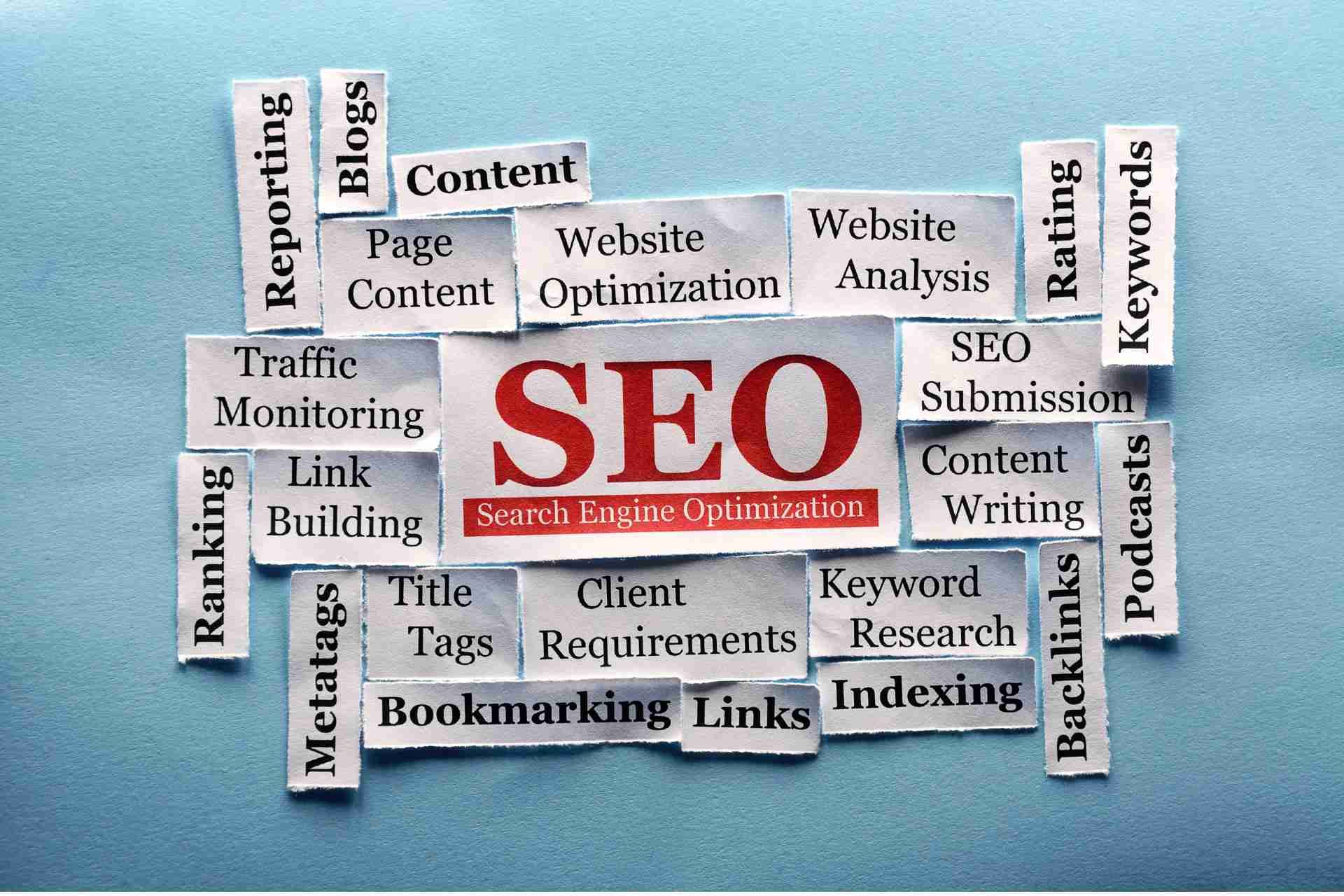Why Your Website is Not Ranking in Google

If your website isn't ranking in Google, it's time to take a closer look at several potential pitfalls. You might be targeting the wrong keywords, or your content could be lacking in quality. There could also be technical issues slowing you down. Ignoring these factors means missing out on valuable traffic. Curious about what specific changes could make a difference? Let's explore the key elements that could turn your site's performance around.
Poor Keyword Research
When it comes to improving your website's ranking, poor keyword research can be a major roadblock. If you're not targeting the right keywords, you're missing out on valuable traffic and potential customers.
It's essential to understand your audience and what they're searching for. Start by brainstorming relevant terms and phrases, then use tools like Google Keyword Planner to gauge search volume and competition.
Don't just focus on high-volume keywords; long-tail keywords can often lead to higher conversion rates because they're more specific. By prioritizing keywords that align with your content and user intent, you'll create a stronger foundation for your SEO strategy.
Lack of Quality Content
Targeting the right keywords is just the first step; without quality content, your efforts can fall flat. If your website lacks informative, engaging, and well-researched content, visitors won't stick around. You need to provide value to your audience, answering their questions and addressing their needs.
Quality content establishes your authority, builds trust, and encourages sharing, all of which boost your rankings. Moreover, search engines prioritize websites that consistently deliver high-quality content. If you're merely stuffing keywords without substance, you'll likely be penalized.
Invest time in creating comprehensive articles, blog posts, or guides that resonate with your target audience. Remember, it's not just about quantity; it's about quality. Focus on crafting content that captivates and informs, and you'll see improvements in your search rankings.
Technical SEO Issues
Although you may have high-quality content, technical SEO issues can still keep your website from ranking well in Google. If your site has broken links, search engines struggle to crawl it effectively.
Missing or incorrect meta tags can confuse search engines about your content, leading to poor indexing. Additionally, improper use of header tags can hinder your site's structure, making it harder for both users and search engines to navigate.
If you haven't optimized your XML sitemap, Google mightn't discover all your pages. Lastly, ensure your website is mobile-friendly, as a non-responsive design can lower your rankings.
Addressing these technical SEO issues is crucial for improving your visibility and attracting more organic traffic.
Slow Page Load Speed
Technical SEO issues can set the stage for slow page load speed, which is another critical factor affecting your website's ranking. If your site takes too long to load, users will bounce, and search engines might see that as a sign of poor quality. You should aim for a load time of under three seconds.
To improve speed, compress images, minimize CSS and JavaScript, and leverage browser caching. Tools like Google PageSpeed Insights can help identify specific areas needing attention.
Every millisecond counts—faster sites tend to rank higher. Remember, a smooth user experience leads to longer visits and lower bounce rates, ultimately boosting your SEO.
Don't underestimate the power of speed; it can make or break your website's visibility.
Mobile Responsiveness
When your website isn't mobile responsive, you're missing out on a huge segment of potential traffic. Most users browse the internet on their smartphones, and if your site doesn't adapt to different screen sizes, they'll likely bounce away.
Google prioritizes mobile-friendly sites in search rankings, so if your website isn't responsive, you're lowering your chances of visibility.
To improve your mobile responsiveness, consider using a responsive design that adjusts to various devices. Test your site on different smartphones and tablets to ensure a smooth user experience.
Don't forget about fast loading times, as users expect quick access to information. By optimizing for mobile, you'll not only enhance user experience but also increase your chances of ranking higher in search results.
Weak Backlink Profile
If your website has a weak backlink profile, it's likely struggling to gain the visibility it deserves.
Backlinks act as votes of confidence from other sites, signaling to Google that your content is valuable. Without a solid network of incoming links, search engines may view your site as less credible.
To improve this, focus on acquiring high-quality backlinks from reputable sources within your niche. Engage in guest blogging, collaborate with influencers, or create shareable content that naturally attracts links.
Avoid spammy or low-quality links, as they can harm your rankings. Regularly audit your backlink profile to identify and disavow any harmful links.
Strengthening your backlink profile can significantly boost your website's authority and visibility in search results.
Neglecting User Experience
A weak backlink profile can make it difficult for your website to gain authority, but that's not the only factor affecting your rankings. Neglecting user experience (UX) can hurt your visibility in search results. If visitors find your site hard to navigate, they're likely to leave quickly, increasing your bounce rate. Google notices this and may lower your ranking.
Ensure your website is user-friendly by optimizing load times, maintaining a clean design, and making content easy to read.
Use clear calls to action and ensure your site is mobile-responsive. When you prioritize user experience, you not only engage your audience but also signal to Google that your site is valuable, improving your chances of ranking higher.
Inconsistent Content Updates
Inconsistent content updates can hinder your website's visibility, as search engines favor fresh and relevant information. If you're not regularly updating your content, you risk falling behind your competitors who are.
Regular updates signal to search engines that your site is active and worth indexing. Aim to establish a content schedule that keeps your site dynamic. Whether it's blog posts, articles, or product updates, consistency is key.
If you only update occasionally, search engines may perceive your site as outdated, leading to lower rankings. Additionally, fresh content engages visitors, encouraging them to return.
Conclusion
In conclusion, if your website isn't ranking on Google, it's time to take a closer look at these critical factors. By improving your keyword research, creating quality content, fixing technical issues, and enhancing user experience, you'll boost your site's visibility. Don't forget the importance of mobile responsiveness and building a strong backlink profile. Consistently updating your content will also keep visitors engaged. Take action now, and watch your website climb the search results!






